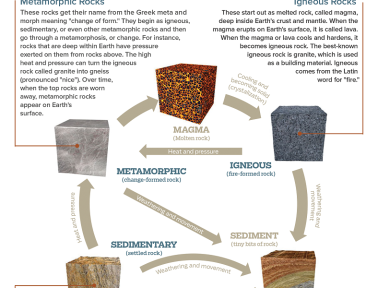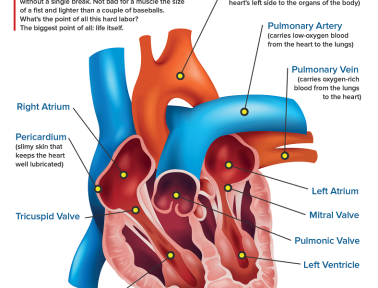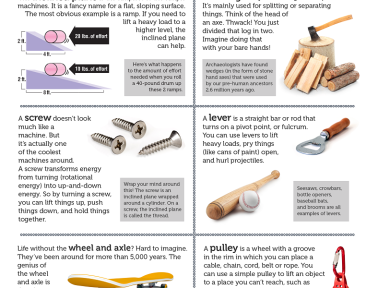Sorry to be turning to another repost, yet little has actually gone as planned today… or today! Such is life! We roll with it!
This initially uploaded September 5, 2009.
As I began creating this post, it emerged that I was composing a preaching in two parts. (Brevity has never really been my strong suit.) Do not fret, you don’t need to change into your Sunday ideal, your jammies are simply great (you understand that you are). Simply obtain comfy, I have actually got a lot on my mind.
If you want to obtain preschool teachers all provoked up, talk about “push-down educational program” (pressing academic criteria from one quality to the next- pushing well-versed reading skills from first grade to preschool, as well as now to preschool, for instance). I review this article recently, and also it truly obtained me considering academics as well as young children.
High Dive or Marathon
Initially, the evident. The write-up’s examples of lowered academic educational program are merely not developmentally proper. Mandating that youngsters will start reading earlier or doing basic mathematics at younger ages is like passing a law that all flowers need to currently flower in February. Just because you state it, doesn’t make it practical! You can’t mandate brain advancement! These wide, one-size-fits-all requirements, just don’t operate at these young ages. You can not in good principles claim that all kindergarteners will certainly read at the exact same level on May 3rd, regardless of their real ages. Just think about a group of kindergarteners. Their ages range a minimum of one full year. For a kindergartener going into at 4 years of ages, that implies her peers might be 25% older than she is. Since the rate of development and growth at this age is so rapid, a little bit of time can make a massive difference! 25% more time for experience, advancement, and maturation is mosting likely to create a great deal of difference! Due to that difference, setting specific assumptions of discovering end results for a big group of kids to achieve concurrently is certainly mosting likely to trigger several to fizzle.
We need to transform our way of thinkings regarding analyzing education and learning in these very early years. (Or maybe I need to claim we need to assist enlighten others in order to alter their mindsets.) Let me provide you an example to illustrate. In high school, I got on the track team, and also my favorite event was high dive. Well, in high dive, bench is evaluated specific heights, relaxing, in fact, on the requirements. At each height, the jumpers have three attempts to get rid of the bar, without knocking it off of the standards. If you are successful, congratulations. Otherwise, you’re done. The rest of the area goes on without you. (I’m absolutely not saying anything defaming about high dive, I quite enjoyed it. I’m just attempting to show a point below. Stick to me.) Currently, I additionally ran a marathon a number of years back. The course was lengthy as well as, sometimes, difficult. I definitely am not an elite jogger. As the champion crossed the finish line I was probably agonizing my means up a lengthy hill. Nevertheless, when I went across the goal, there were still people lining the surface, applauding. And also they were still supporting on joggers for two hours or two behind me. Those crowds understood that hiking that 26.2 mile course was an accomplishment, which each runner had actually worked hard as well as completed it as quickly as they were capable of doing so.
In the very early years, we need broad developing overviews, revealing that a program is being adhered to and also ideal progress is being made, cheering on each youngster at an individualized pace, as in the marathon. Children don’t require a mandated bar readied to show whether a youngster has grasped the somewhat arbitrarily set standards at the very same time as his peers, and oh, otherwise, the area goes on (to initial grade) without you.
Along with the risk of establishing unacceptable assumptions, lowered educational program tends to press out crucial facets of a preschool education and learning. Crucial social abilities that aid youngsters operate efficiently in a team, creative thinking that promotes adaptability of thinking and a worth of ingenuity, in addition to self-help abilities that cultivate autonomy, all take a rear seats when extreme amounts of time have to be spent resting at a table with a tutor, or piercing with flashcards.
I have to laugh at the concept of passing up social experiences, exploration, and also all-natural questions in the name of “kindergarten preparedness”. Among one of the most academically prepared pupils I ever before instructed was one of the least “prepared” to be successful in college. She could review well-above her grade level, but had great difficulty getting along with her peers and also acted impulsively and emotionally. She had little inner inspiration and battled to stay on-task. In my viewpoint, social abilities are a lot more carefully corresponded with “kindergarten readiness” than are scholastic skills. Give me a youngster that can quadrate others, pay attention to as well as adhere to directions, as well as who loves knowing, and also I actually don’t care what scholastic skills they can check off on a checklist, that kid will certainly do just great.
And also now, Component 2 of the sermon. Do not hesitate to sing a rousing remainder hymn if you need a break before keeping reading … Playing orLearning: A False DualityWith the obvious problems concerning lower educational program established, I have to question the article’s duality between academics and play. It’s an either/or scenario argued regularly in preschool circles. As the write-up compares the two, you have a burnt-out five years of age resting at the table creating essays as well as competing through flash cards with a tutor, versus the classic summary of the kindergartens most of us went to, where we “played, snacked, and slept”. Discovering and also play do not need to be equally special. I see learning as an outcome, and also play as an approach.The trouble with the explained five year old wasn’t what she was learning, it was how she was learning. I am not ready to state that children ought to not find out a certain skill in preschool even if it’s– gasp- scholastic. Some kids can discover advanced abilities at young ages. If they were prepared and also the chance occurred (often in the kind of their own concerns), I would not pass that up. However I will object to academics being educated in an unacceptable way (resting at a table for two hrs of direction, for example).
Just as Judith Schickendanz defines in her publication, Much More than the ABCs, we need to stop shouting that youngsters should not find out to read in preschool for instance, and understand that they are finding out to review in preschool, every single time they “create” a letter at the blog post office in the significant play area, or when they assist create brand-new rhymes for a silly song in large team, or when they share a book throughout tiny group. Kids can find out all sort of scholastic ideas while playing as well as enjoying. Occasionally this understanding is subordinate, in some cases it comes as result of a very carefully prepared area, as well as generally it comes as an instructor recognizes how to engage youngsters in fascinating conversations and existing interesting materials for kids to use to learn via play. And also I do not just indicate learn to get on and behave (though I have actually already argued the value of that) I indicate they learn academic concepts, as well as their precursors, as they play. Kids discover to arrange and also count, they find out and experiment with brand-new words and concepts, they begin to acknowledge and also point out letters, and so far more, all while they play in a developmentally suitable atmosphere.
To take an example from the short article, composing an essay to improve penmanship is tiresome at any kind of age, however developmentally unsuitable at five. Youngsters this age battle with penmanship as much or even a lot more so because they lack the appropriate muscle toughness as well as control as they do because they’re discovering what the letters need to resemble. A kid can engage in any variety of fun fine motor activities (I loved these I discovered at another site lately) as well as build the essential toughness as well as control that are needed for good penmanship. And you won’t have to chain them to the table to obtain them to do it. They really enjoy it.
Furthermore, I take place to understand plenty of preschoolers that mosted likely to kindergarten knowing how to check out, that really did not have tutors or expensive reading packages. They were surrounded by a culture of proficiency and had minds that were ready for the job. (I’ve additionally seen very first graders who couldn’t fairly review, actually, a standard examination would reveal they did not appropriately “clear bench”, yet that demonstrated skills that revealed they were on the program, and also making progress. As well as within months, they were reading.)
So the conversation should not really be play vs academics, it needs to have to do with welcoming children to find out ideal scholastic principles, at their own speed via play. That needs experienced educators (moms and dads included) that can create as well as take advantage of teachable moments, that can prepare inviting, lively academic settings, and also that know the kids they show, as well as kid growth, well enough to acknowledge what is appropriate for their kids, not what a commercial, board, or worried person says their kids should be doing. “Academic” is not a negative word, and “play” is not its antithesis. Youngsters need to discover to play and they need to play to find out.
Can I get an amen?
Leading picture by Ayla87.










